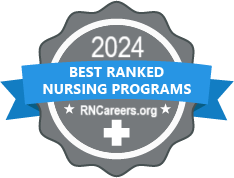9th Annual New York RN Program Rankings by RNCareers.org
To help nursing students in their search for a top RN program, the education experts at RNCareers.org publish their annual findings of the best nursing schools for both New York and the country. Schools ranked on our list have proven their ability to educate highly competent nurses.
To create our rankings, we evaluated 59 ADN degree programs and 40 BSN degree programs in New York. We obtained each institution’s first-time NCLEX-RN passing rates, the number of students taking the test, the program nursing accreditation and more. We then compared the results against other nursing programs in New York to provide our state rankings. View our methodology.
Nursing is one of the most in-demand professions in New York state. There are dozens of RN programs in New York that offer baccalaureate options. There is a greater need now, more than ever, for registered nurses in New York. Current proposed legislation would require registered nurses to obtain a bachelor’s of science in nursing degree. Nursing is one of the biggest professions in the state of New York. There are approximately 272,800 licensed register nurses in New York. It is predicted that 5,000 more registered nurses will be needed annually. On average, New York nurses generally have a higher education. 41% of RNs in New York hold a bachelor’s degree or higher.
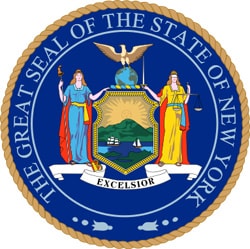
Best ADN Programs in New York
- Cayuga County Community College
- Erie Community College-North
- Rockland Community College
- College of Staten Island CUNY
- Samaritan Hospital School of Nursing
- Genesee Community College
- Monroe Community College
- Onondaga Community College
- Hudson Valley Community College
- SUNY Westchester Community College
- Niagara County Community College
- Jefferson Community College
- Suffolk County Community College Selden
- Maria College of Albany
- St Joseph's College of Nursing at St Joseph's Hospital Health Center
- Mohawk Valley Community College
- Tompkins Cortland Community College
- Jamestown Community College
- Pomeroy College of Nursing at Crouse Hospital
- Clinton Community College
#1 Associate Degree in Nursing
Cayuga County Community College
Pass Rate
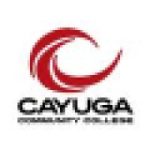
 197 Franklin Street, Auburn, NY - 13021-3099
197 Franklin Street, Auburn, NY - 13021-3099 (315) 255-1743
(315) 255-1743
- NCLEX Passing Rate: (A) 98.33%
- Programs: Registered Nursing
- Award Levels: Associate
University Information
 Total Faculty: 43
Total Faculty: 43 In-State Undergraduate Tuition: $6,292
In-State Undergraduate Tuition: $6,292 Book and Supplies: $1,250
Book and Supplies: $1,250 Percent Received Aid: 89%
Percent Received Aid: 89% Average Grant or Scholarship: $6,526
Average Grant or Scholarship: $6,526 Percent Admitted: N/A
Percent Admitted: N/A Percent Admitted who Enrolled: N/A
Percent Admitted who Enrolled: N/A Graduation Rate: 30%
Graduation Rate: 30%
Cayuga Community College is a public community educational institution with two campuses- Auburn Campus and Fulton Campus. It was founded in 1953 and initially called Auburn Community College. Prior to its current name, it was also formerly known as Cayuga County Community College. Cayuga is one of the colleges under the State University of New York (SUNY) system. Its School of Health Sciences offers a seamless transfer through the college’s articulation agreements with several universities. Moreover, its Nursing program is registered by the Office of Professions and accredited by ACEN.
Students at Cayuga Community College will learn how to make safe clinical judgments and communication techniques to ensure they can effectively relay information to members of their healthcare team, as well as patients and their families. CCC also has formal partnerships (articulation agreements) with several baccalaureate nursing programs, making the transition between an ADN to BSN program a streamlined process.
Associate in Applied Science Degree in Nursing - Offered at both Auburn and Fulton campuses, this 64-credit program equips students for their roles as entry-level nurses. Theoretical knowledge is applied through clinical practice conducted in nursing laboratories and various clinical settings. A balance between nursing and general education courses is also ensured in the curriculum. Among the clinical sites are: Upstate University Hospital Community Campus, Oswego Hospital, Finger Lakes Center for Living, and Cayuga County Health Department, among others. Students are trained to provide safe clinical judgments, caring behavior, and patient-centered care. In order to progress in the program, a grade of C+ or 77 or better is required in each nursing course. Graduates are conferred an Associate in Applied Science degree in Nursing and can sit in the NCLEX-RN licensing exam. The college also has articulation agreements with schools offering baccalaureate nursing programs, hence, students can seamlessly transfer earned credits towards a BSN degree.
#2 Associate Degree in Nursing
Erie Community College-North
Pass Rate
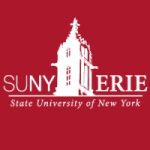
 121 Ellicott St, Buffalo, NY - 14203-2698
121 Ellicott St, Buffalo, NY - 14203-2698 (716) 851-1000
(716) 851-1000
- NCLEX Passing Rate: (A) 97.96%
- Programs: Registered Nursing
- Award Levels: Associate
University Information
 Total Faculty: 265
Total Faculty: 265 In-State Undergraduate Tuition: $5,722
In-State Undergraduate Tuition: $5,722 Book and Supplies: $1,100
Book and Supplies: $1,100 Percent Received Aid: 81%
Percent Received Aid: 81% Average Grant or Scholarship: $6,515
Average Grant or Scholarship: $6,515 Percent Admitted: N/A
Percent Admitted: N/A Percent Admitted who Enrolled: N/A
Percent Admitted who Enrolled: N/A Graduation Rate: 25%
Graduation Rate: 25%
Erie Community College is located in Buffalo, NY and is part of the SUNY consortium. They offer an ACEN accredited ADN program that focuses on preparing graduates for nursing roles in diverse settings, and their ability to provide patient-centered, quality care in a complex, dynamic society. Classes are offered at the City Campus and the North Campus. City Campus applicants must apply by September 15, while North Campus applicants must apply by February 15. Students will complete a curriculum that combines nursing theory with courses such as sociology and English composition and literature. Providing a comprehensive education is of the essence to Erie’s nursing division, as their program aims to graduate nurses who are valuable team members with self-awareness and critical thinking skills, which allows them to excel in the nursing field.
Erie does offer academic and transfer counsel, providing students guidance if they choice to transfer into a BSN program upon graduation.
#3 Associate Degree in Nursing
Rockland Community College
Pass Rate
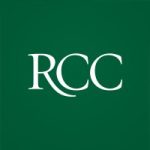
 145 College Rd, Suffern, NY - 10901-3699
145 College Rd, Suffern, NY - 10901-3699 (845) 574-4000
(845) 574-4000
- NCLEX Passing Rate: (A) 97.82%
- Programs: Registered Nursing
- Award Levels: Associate
University Information
 Total Faculty: 89
Total Faculty: 89 In-State Undergraduate Tuition: $6,120
In-State Undergraduate Tuition: $6,120 Book and Supplies: $1,380
Book and Supplies: $1,380 Percent Received Aid: 58%
Percent Received Aid: 58% Average Grant or Scholarship: $4,735
Average Grant or Scholarship: $4,735 Percent Admitted: N/A
Percent Admitted: N/A Percent Admitted who Enrolled: N/A
Percent Admitted who Enrolled: N/A Graduation Rate: 28%
Graduation Rate: 28%
Located in Suffern, Rockland Community College (RCC) is an MSCHE-accredited two-year public college, and is the only public higher educational institution in Rockland County. RCC places emphasis on a supportive learning environment with personalized classes, made possible through the college's average section size of 18. Aside from its MSCHE accreditation, RCC also received authorization from the Board of Regents to award two-year Associate degrees in Science (AS), in Arts (AA) and in Applied Science (AAS) programs. Moreover, in terms of accreditation, its Nursing Program under the School of Nursing, Health, and Wellness is accredited by ACEN and licensed by New York State Education Department.
Associate of Science (Nursing) - With 64 total credit hours taken in four sequential semesters (or two years), this Associate of Science in Nursing program prepares students for competent, humanistic, and patient-centered care provision. Aside from the two-year completion, a part-time study option is also available. Program admission is two times every year. Graduates are eligible to sit in the NCLEX-RN needed for practice as entry-level nurses. Meanwhile, an LPN to RN pathway is also available for licensed practical nurses seeking an associate degree in nursing.
#4 Associate Degree in Nursing
College of Staten Island CUNY
Pass Rate
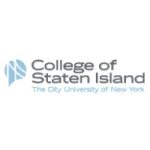
 2800 Victory Blvd, Staten Island, NY - 10314
2800 Victory Blvd, Staten Island, NY - 10314 7189822000
7189822000
- NCLEX Passing Rate: (A) 94.86%
- Programs: Registered Nursing
- Award Levels: Associate
University Information
 Total Faculty:
Total Faculty:  In-State Undergraduate Tuition: N/A
In-State Undergraduate Tuition: N/A Book and Supplies: N/A
Book and Supplies: N/A Percent Received Aid: N/A
Percent Received Aid: N/A Average Grant or Scholarship: N/A
Average Grant or Scholarship: N/A Percent Admitted: N/A
Percent Admitted: N/A Percent Admitted who Enrolled: N/A
Percent Admitted who Enrolled: N/A Graduation Rate: N/A
Graduation Rate: N/A
#5 Associate Degree in Nursing
Samaritan Hospital School of Nursing
Pass Rate
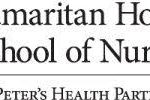
 1300 Massachusetts Avenue, Troy, NY - 12065
1300 Massachusetts Avenue, Troy, NY - 12065 (518) 268-5130
(518) 268-5130
- NCLEX Passing Rate: (A) 94.60%
- Programs: Registered Nursing
- Award Levels: Associate
University Information
 Total Faculty: 7
Total Faculty: 7 In-State Undergraduate Tuition: $1,800
In-State Undergraduate Tuition: $1,800 Book and Supplies: N/A
Book and Supplies: N/A Percent Received Aid: 100%
Percent Received Aid: 100% Average Grant or Scholarship: $3,245
Average Grant or Scholarship: $3,245 Percent Admitted: 100%
Percent Admitted: 100% Percent Admitted who Enrolled: 100%
Percent Admitted who Enrolled: 100% Graduation Rate: N/A
Graduation Rate: N/A
Since 1903, the Samaritan Hospital School of Nursing has educated students in the nursing field. The school is located on the second floor of St. Mary’s Hospital in Troy, NY and offers an immersive, ACEN accredited ADN program. Because of the school’s ideal location, students are exposed to seamless clinical experiences. The Samaritan Hospital School of Nursing is affiliated with St. Peter’s Health Partners, which consists of an extensive healthcare and community network, connecting students with opportunities in various healthcare settings.
The program further boasts a small student teacher ratio, ensuring that each student receives one-on-one attention. The faculty places importance on a holistic approach to patient care, incorporating evidence-based and culturally sensitive principles into preparing nurses who are excellent team players, communicators, and care givers. Samaritan also has partnerships with various colleges throughout the state that offer BSN program, providing a seamless transfer into these program if a student wishes to do so.
#6 Associate Degree in Nursing
Genesee Community College
Pass Rate
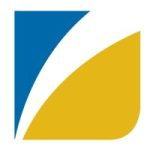
 One College Rd, Batavia, NY - 14020-9704
One College Rd, Batavia, NY - 14020-9704 (585) 343-0055
(585) 343-0055
- NCLEX Passing Rate: (A) 93.85%
- Programs: Registered Nursing
- Award Levels: Associate
University Information
 Total Faculty: 81
Total Faculty: 81 In-State Undergraduate Tuition: $5,240
In-State Undergraduate Tuition: $5,240 Book and Supplies: $1,475
Book and Supplies: $1,475 Percent Received Aid: 96%
Percent Received Aid: 96% Average Grant or Scholarship: $2,839
Average Grant or Scholarship: $2,839 Percent Admitted: N/A
Percent Admitted: N/A Percent Admitted who Enrolled: N/A
Percent Admitted who Enrolled: N/A Graduation Rate: 33%
Graduation Rate: 33%
Genesee Community College is located in Batavia, New York. They offer an associate's degree program and an advanced placement option for LPNs, where the LPN enters the program in the third semester. They also have affiliations with other local universities so that their graduates may attend for their BSN easily after graduation.
#7 Associate Degree in Nursing
Monroe Community College
Pass Rate
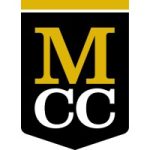
 1000 E Henrietta Rd, Rochester, NY - 14623
1000 E Henrietta Rd, Rochester, NY - 14623 (585) 292-2000
(585) 292-2000
- NCLEX Passing Rate: (A) 92.97%
- Programs: Registered Nursing
- Award Levels: Associate
University Information
 Total Faculty: 245
Total Faculty: 245 In-State Undergraduate Tuition: $5,662
In-State Undergraduate Tuition: $5,662 Book and Supplies: $1,200
Book and Supplies: $1,200 Percent Received Aid: 85%
Percent Received Aid: 85% Average Grant or Scholarship: $6,520
Average Grant or Scholarship: $6,520 Percent Admitted: N/A
Percent Admitted: N/A Percent Admitted who Enrolled: N/A
Percent Admitted who Enrolled: N/A Graduation Rate: 23%
Graduation Rate: 23%
Monroe Community College is located in Rochester, New York. Their program is an associate's degree program. They do have an advanced placement option available for LPNs. There is also an option available for high school graduates that would like to have a place in the program during their freshman year of college.
#8 Associate Degree in Nursing
Onondaga Community College
Pass Rate
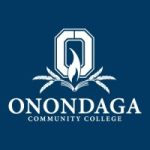
 4585 West Seneca Turnpike, Syracuse, NY - 13215-4585
4585 West Seneca Turnpike, Syracuse, NY - 13215-4585 (315) 498-2622
(315) 498-2622
- NCLEX Passing Rate: (A) 92.47%
- Programs: Registered Nursing
- Award Levels: Associate
University Information
 Total Faculty: 173
Total Faculty: 173 In-State Undergraduate Tuition: $5,754
In-State Undergraduate Tuition: $5,754 Book and Supplies: $650
Book and Supplies: $650 Percent Received Aid: 86%
Percent Received Aid: 86% Average Grant or Scholarship: $7,091
Average Grant or Scholarship: $7,091 Percent Admitted: N/A
Percent Admitted: N/A Percent Admitted who Enrolled: N/A
Percent Admitted who Enrolled: N/A Graduation Rate: 23%
Graduation Rate: 23%
Onondoga Community College is located in Saratoga, NY. They offer an ACEN accredited ADN program, and offers a hybrid curriculum. Theoretical components of the curriculum, mostly involving nursing theory, are taught online and reviewed in face-to-face settings. Students will have hands on clinical and lab experiences, as well as one-on-one sessions with faculty to ensure knowledge is being acquired appropriately and adequately. Because of its hybrid set up, students are able to complete the program at a flexible pace, allowing them to retain part-time employment and take care of their families. OCC also offers LPNs up to 10 hours of credit for their previous education, but they will still have to complete at least three semesters of nursing courses.
The coursework is a blend of general knowledge, nursing theory, and clinical experience. The core values of the nursing curriculum consist of safe and competent practice, diversity, leadership, critical thinking, caring, technology, and professionalism.
#9 Associate Degree in Nursing
Hudson Valley Community College
Pass Rate
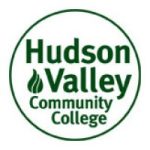
 80 Vandenburgh Ave, Troy, NY - 12180
80 Vandenburgh Ave, Troy, NY - 12180 (518) 629-4822
(518) 629-4822
- NCLEX Passing Rate: (A) 92.41%
- Programs: Registered Nursing
- Award Levels: Associate
University Information
 Total Faculty: 211
Total Faculty: 211 In-State Undergraduate Tuition: $5,964
In-State Undergraduate Tuition: $5,964 Book and Supplies: $1,500
Book and Supplies: $1,500 Percent Received Aid: 81%
Percent Received Aid: 81% Average Grant or Scholarship: $5,513
Average Grant or Scholarship: $5,513 Percent Admitted: N/A
Percent Admitted: N/A Percent Admitted who Enrolled: N/A
Percent Admitted who Enrolled: N/A Graduation Rate: 32%
Graduation Rate: 32%
Hudson Valley Community College was founded in 1953 and is located in Troy, NY. HVCC offers an ACEN accredited ADN program, in addition to a one-year advanced placement option. This is a very competitive program, and it is advised to ensure that basic criteria can be met before applying. The advanced placement option is 12 months long and starts in the summer. There is also a part-time evening nursing program, which takes four years to complete and is suitable for those who balance other time consuming commitments in their everyday life. Do note that the advanced placement track offers day-time instruction only.
The college has a small class size and student to faculty ratio of 19:1 to provide increased attention from instructors. Its Nursing and Surgical Technology Department’s curriculum places emphasis on correlation between theory and practice. Clinical experience site includes, but not limited to: Ellis Hospital, Albany Medical Center, Pathways Nursing and Rehabilitation Center, and Van Rensselaer Manor Nursing and Rehabilitation.
HVCC has a nursing resource lab, offering simulated patient care experiences with vital sign simulation manikins in a non-threatening atmosphere. The nursing lab has a full-time education specialist who provides students with supplemental instruction and remediation in a one-on-one setting.
Nursing (AAS) - This Associate Degree Program can be completed in two or four years for a full-time or part-time study, respectively. This prepares students for nursing care provision in various healthcare settings. Hands-on-activities are conducted in the college’s state-of-the art facilities. Its Nursing Resource Lab provides opportunities for evidence-based practice both through self-directed and facilitated learning. The laboratories are also smart classrooms and are equipped with life-size adult, infant, and pediatric manikins. Moreover, Vital-SIM (vital sign simulation) manikins are also available. Program admission is competitive. Upon program completion, students can sit in the NCLEX-RN licensing exam. Meanwhile, an Advanced Placement Nursing option is also available for eligible students allowing them to complete their Nursing AAS degree and start with their BSN degree in one year of study. The said BSN advanced placement option is offered through the Empire State College.
#10 Associate Degree in Nursing
SUNY Westchester Community College
Pass Rate

 75 Grasslands Road, Valhalla, NY - 10595
75 Grasslands Road, Valhalla, NY - 10595 (914) 606-6600
(914) 606-6600
- NCLEX Passing Rate: (A) 92.16%
- Programs: Registered Nursing
- Award Levels: Associate
University Information
 Total Faculty: 168
Total Faculty: 168 In-State Undergraduate Tuition: $5,374
In-State Undergraduate Tuition: $5,374 Book and Supplies: $2,400
Book and Supplies: $2,400 Percent Received Aid: 63%
Percent Received Aid: 63% Average Grant or Scholarship: $5,241
Average Grant or Scholarship: $5,241 Percent Admitted: N/A
Percent Admitted: N/A Percent Admitted who Enrolled: N/A
Percent Admitted who Enrolled: N/A Graduation Rate: 20%
Graduation Rate: 20%
Westchester Community College opened in 1953 and is located in Valhalla, NY. They offer an ACEN accredited ADN program. Graduates from their program are guaranteed admission to a SUNY four-year campus to complete their BSN if they so desire. Applicants are required to take the TEAS exam, a determinant of admission to the nursing program. The TEAS exam is a 3.5 hour long examination in math, English, reading, and science. During the first three semesters at WCC students will have three days of program commitments every week, consisting of 1 day of class, 1 day of clinical, and 1 day of lab. During the last semester students will have a 4-day school week, consisting of 2 days of class and 2 days of clinical.
WCC does not offer an evening-only option, but does have evening clinical options. Advanced placement is available for LPNs. WCC enrolls students annually in the fall. Westchester Community College also has a daycare center on-site, the Virginia Marx Children’s Center provides care for preschool children of both staff and students.
#11 Associate Degree in Nursing
Niagara County Community College
Pass Rate
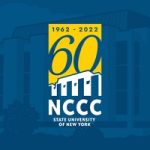
 3111 Saunders Settlement Rd, Sanborn, NY - 14132
3111 Saunders Settlement Rd, Sanborn, NY - 14132 (716) 614-6222
(716) 614-6222
- NCLEX Passing Rate: (A) 92.03%
- Programs: Registered Nursing
- Award Levels: Associate
University Information
 Total Faculty: 88
Total Faculty: 88 In-State Undergraduate Tuition: $5,980
In-State Undergraduate Tuition: $5,980 Book and Supplies: $1,500
Book and Supplies: $1,500 Percent Received Aid: 85%
Percent Received Aid: 85% Average Grant or Scholarship: $5,873
Average Grant or Scholarship: $5,873 Percent Admitted: N/A
Percent Admitted: N/A Percent Admitted who Enrolled: N/A
Percent Admitted who Enrolled: N/A Graduation Rate: 33%
Graduation Rate: 33%
#12 Associate Degree in Nursing
Jefferson Community College
Pass Rate
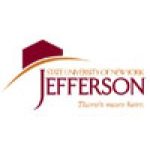
 1220 Coffeen St, Watertown, NY - 13601-1897
1220 Coffeen St, Watertown, NY - 13601-1897 (315) 786-2200
(315) 786-2200
- NCLEX Passing Rate: (A) 91.94%
- Programs: Registered Nursing
- Award Levels: Associate
University Information
 Total Faculty: 66
Total Faculty: 66 In-State Undergraduate Tuition: $1,500
In-State Undergraduate Tuition: $1,500 Book and Supplies: N/A
Book and Supplies: N/A Percent Received Aid: 89%
Percent Received Aid: 89% Average Grant or Scholarship: $5,770
Average Grant or Scholarship: $5,770 Percent Admitted: N/A
Percent Admitted: N/A Percent Admitted who Enrolled: N/A
Percent Admitted who Enrolled: N/A Graduation Rate: 28%
Graduation Rate: 28%
Jefferson Community College opened its doors in 1961, and is located in Watertown, NY. The college offers an ADN program that is ACEN accredited. Nursing students at JCC will benefit from the small class sizes and the simulation laboratory. The program does come with two different pacing options: full-time weekday, meaning that students will complete the program in two academic years, with classes beginning in August; or there’s a part-time weekend option, which is two full years—meaning a summer semester is included as well—and it starts each January.
JCC has transfer agreements with several baccalaureate programs, providing for an easy transition from an ADN to a BSN, if desired. Students will become acquainted with the various specialties in the nursing field, such as pediatrics, medical/surgical nursing, and pharmacology. JCC boasts a caring faculty that takes a student-oriented and supportive approach to preparing excellent nurses.
#13 Associate Degree in Nursing
Suffolk County Community College Selden
Pass Rate
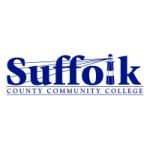
 533 College Rd, Selden, NY - 11784-2899
533 College Rd, Selden, NY - 11784-2899 (631) 451-4110
(631) 451-4110
- NCLEX Passing Rate: (A) 91.22%
- Programs: Registered Nursing
- Award Levels: Associate
University Information
 Total Faculty: 288
Total Faculty: 288 In-State Undergraduate Tuition: $6,270
In-State Undergraduate Tuition: $6,270 Book and Supplies: $1,500
Book and Supplies: $1,500 Percent Received Aid: 69%
Percent Received Aid: 69% Average Grant or Scholarship: $5,728
Average Grant or Scholarship: $5,728 Percent Admitted: N/A
Percent Admitted: N/A Percent Admitted who Enrolled: N/A
Percent Admitted who Enrolled: N/A Graduation Rate: 26%
Graduation Rate: 26%
#14 Associate Degree in Nursing
Maria College of Albany
Pass Rate
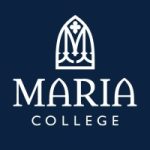
 700 New Scotland Ave, Albany, NY - 12208
700 New Scotland Ave, Albany, NY - 12208 (518) 438-3111
(518) 438-3111

- NCLEX Passing Rate: (A) 90.91%
- Programs: Registered Nursing
- Award Levels: Associate, Bachelor
University Information
 Total Faculty: 34
Total Faculty: 34 In-State Undergraduate Tuition: $1,500
In-State Undergraduate Tuition: $1,500 Book and Supplies: N/A
Book and Supplies: N/A Percent Received Aid: 100%
Percent Received Aid: 100% Average Grant or Scholarship: $3,025
Average Grant or Scholarship: $3,025 Percent Admitted: 36%
Percent Admitted: 36% Percent Admitted who Enrolled: 40%
Percent Admitted who Enrolled: 40% Graduation Rate: N/A
Graduation Rate: N/A
Maria College is a private Catholic school in Albany, NY. They offer an ADN program, as well as an RN to BSN program, and both are ACEN accredited. The campus has a 6,500 square foot nursing teaching and learning facility, providing students with simulated patient-care experiences and hands-on learning. Maria College’s ADN program prepares students for a career in the nursing field by laying a foundation of general education and clinical experience. The program does offer different options for attendance, providing access to traditional and non-traditional students. Students may choose evening or daytime sessions. The program has a small student to teacher ratio, which allows students to receive personal development and guidance as they work through the curriculum.
The RN to BSN program can be completed on a full time or part time basis, and is designed for RNs who want to further develop their knowledge and career prospects. They also offer reduced tuition rates for RNs who work at partnered healthcare institutions.
#15 Associate Degree in Nursing
St Joseph's College of Nursing at St Joseph's Hospital Health Center
Pass Rate

 206 Prospect Ave, Syracuse, NY - 13203
206 Prospect Ave, Syracuse, NY - 13203 (315) 448-5040
(315) 448-5040

- NCLEX Passing Rate: (B) 89.75%
- Programs: Registered Nursing
- Award Levels: Associate
University Information
 Total Faculty: 22
Total Faculty: 22 In-State Undergraduate Tuition: $1,355
In-State Undergraduate Tuition: $1,355 Book and Supplies: N/A
Book and Supplies: N/A Percent Received Aid: 100%
Percent Received Aid: 100% Average Grant or Scholarship: $9,784
Average Grant or Scholarship: $9,784 Percent Admitted: 73%
Percent Admitted: 73% Percent Admitted who Enrolled: 75%
Percent Admitted who Enrolled: 75% Graduation Rate: N/A
Graduation Rate: N/A
St. Joseph’s College of Nursing is located in Syracuse NY and offers an ACEN accredited ADN program. They offer several tracks towards completion. The Weekday RN option requires four-semesters of attendance and takes two years to complete. The Evening/Weekend RN option begins in the summer, and classes meet every other weekend from Friday afternoon through Sunday.
They also offer a dual degree partnership program with Le Moyne College, which requires students to study at Le Moyne for the first and last year if the program, and the second and third year will be spent at St. Joseph’s College of Nursing. This program is suitable for students seeking a more traditional college experience. Another program offered is the accelerated dual degree partnership with Le Moyne College. This 18-month option is ideal for students who hold a previous non-nursing bachelor’s degree who want to become a nurse. Upon graduation from the program, students will have earned an ADN from St. Joseph’s College as well as a BSN from Le Moyne College.
#16 Associate Degree in Nursing
Mohawk Valley Community College
Pass Rate

 1101 Sherman Dr, Utica, NY - 13501-5394
1101 Sherman Dr, Utica, NY - 13501-5394 (315) 792-5400
(315) 792-5400
- NCLEX Passing Rate: (B) 89.44%
- Programs: Registered Nursing
- Award Levels: Associate
University Information
 Total Faculty: 122
Total Faculty: 122 In-State Undergraduate Tuition: $5,500
In-State Undergraduate Tuition: $5,500 Book and Supplies: $1,616
Book and Supplies: $1,616 Percent Received Aid: 91%
Percent Received Aid: 91% Average Grant or Scholarship: $6,964
Average Grant or Scholarship: $6,964 Percent Admitted: N/A
Percent Admitted: N/A Percent Admitted who Enrolled: N/A
Percent Admitted who Enrolled: N/A Graduation Rate: 32%
Graduation Rate: 32%
#17 Associate Degree in Nursing
Tompkins Cortland Community College
Pass Rate
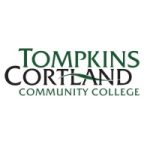
 170 North St, Dryden, NY - 13053-0139
170 North St, Dryden, NY - 13053-0139 (607) 844-8211
(607) 844-8211
- NCLEX Passing Rate: (B) 89.29%
- Programs: Registered Nursing
- Award Levels: Associate
University Information
 Total Faculty: 54
Total Faculty: 54 In-State Undergraduate Tuition: $6,625
In-State Undergraduate Tuition: $6,625 Book and Supplies: $1,200
Book and Supplies: $1,200 Percent Received Aid: 91%
Percent Received Aid: 91% Average Grant or Scholarship: $5,733
Average Grant or Scholarship: $5,733 Percent Admitted: N/A
Percent Admitted: N/A Percent Admitted who Enrolled: N/A
Percent Admitted who Enrolled: N/A Graduation Rate: 22%
Graduation Rate: 22%
Tompkins Cortland Community College is located in Dryden, NY. The college offers an ACEN accredited ADN program with a focus on providing students with clinical opportunities in various health care settings. There are scholarships available exclusively to nursing students. Students may also take on an internship during the summer following the second semester of the program, as well as during the winter break following the third semester. These internships are a total of 100 to 150 hours, with guidance from a faculty mentor. The program has business partners who offer graduates from the Tompkins Cortland program positions in their medical facilities. The college is also part of the SUNY system, thereby providing students with transfer opportunities to 4-year schools and university centers. The program enrolls a new class annually in the fall.
In partnership with Guthrie Cortland Medical Center, Tompkins Cortland offers an evening nursing program in a hybrid format. There will be online instruction, as well as face-to-face and clinical experiences. In-person instruction is thrice weekly, on Monday, Tuesdays, and Wednesdays from 4pm to 10pm.
#18 Associate Degree in Nursing
Jamestown Community College
Pass Rate
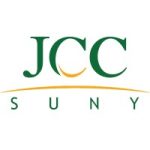
 525 Falconer St, Jamestown, NY - 14701
525 Falconer St, Jamestown, NY - 14701 (716) 338-1000
(716) 338-1000
- NCLEX Passing Rate: (B) 89.19%
- Programs: Registered Nursing
- Award Levels: Associate
University Information
 Total Faculty: 64
Total Faculty: 64 In-State Undergraduate Tuition: $6,350
In-State Undergraduate Tuition: $6,350 Book and Supplies: $1,200
Book and Supplies: $1,200 Percent Received Aid: 91%
Percent Received Aid: 91% Average Grant or Scholarship: $6,834
Average Grant or Scholarship: $6,834 Percent Admitted: N/A
Percent Admitted: N/A Percent Admitted who Enrolled: N/A
Percent Admitted who Enrolled: N/A Graduation Rate: 37%
Graduation Rate: 37%
#19 Associate Degree in Nursing
Pomeroy College of Nursing at Crouse Hospital
Pass Rate
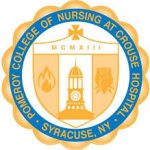
 765 Irving Ave, Syracuse, NY - 13210-1687
765 Irving Ave, Syracuse, NY - 13210-1687 (315) 470-7256
(315) 470-7256
- NCLEX Passing Rate: (B) 88.79%
- Programs: Registered Nursing
- Award Levels: Associate
University Information
 Total Faculty: 16
Total Faculty: 16 In-State Undergraduate Tuition: $1,400
In-State Undergraduate Tuition: $1,400 Book and Supplies: N/A
Book and Supplies: N/A Percent Received Aid: 100%
Percent Received Aid: 100% Average Grant or Scholarship: $5,584
Average Grant or Scholarship: $5,584 Percent Admitted: 72%
Percent Admitted: 72% Percent Admitted who Enrolled: 74%
Percent Admitted who Enrolled: 74% Graduation Rate: 61%
Graduation Rate: 61%
The Pomeroy College of Nursing is located in Syracuse, NY and offers an ACEN accredited ADN program. The program has affordable tuition rates and boasts small class sizes and a state-of-the-art environment. They have numerous RN to BSN affiliations, offering a seamless transition from Pomeroy to a BSN program. The nursing school is conveniently located across from Crouse Hospital, providing easy access to clinical experiences. Students will receive faculty advising, career counseling and job placement assistance. They also offer a “Degree in 3” program in partnership with Le Moyne College, offering dual matriculation at both Pomeroy and Le Moyne colleges with an ADN and BSN degree.
Students have various options for completing the ADN curriculum. There’s a full time option, extended program (which lasts 5 semesters), and an evening/weekend option (18 months).
#20 Associate Degree in Nursing
Clinton Community College
Pass Rate
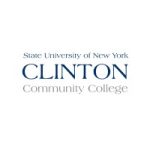
 136 Clinton Point Dr., Plattsburgh, NY - 12901
136 Clinton Point Dr., Plattsburgh, NY - 12901 (518) 562-4200
(518) 562-4200
- NCLEX Passing Rate: (B) 88.51%
- Programs: Registered Nursing
- Award Levels: Associate
University Information
 Total Faculty: 33
Total Faculty: 33 In-State Undergraduate Tuition: $6,831
In-State Undergraduate Tuition: $6,831 Book and Supplies: $1,100
Book and Supplies: $1,100 Percent Received Aid: 89%
Percent Received Aid: 89% Average Grant or Scholarship: N/A
Average Grant or Scholarship: N/A Percent Admitted: N/A
Percent Admitted: N/A Percent Admitted who Enrolled: N/A
Percent Admitted who Enrolled: N/A Graduation Rate: 30%
Graduation Rate: 30%
Clinton Community College was established in 1966 in the Town of Plattsburgh, NY. CCC has a residential campus, providing an immersive educational experience. They offer an ADN program and an LPN-RN bridge program. Both offerings are ACEN accredited and students may apply and enroll annually in the fall. The core values of the nursing department consist of integrity, holistic care, academic excellence and lifelong learning, diversity, and critical reasoning and reflection. They place great importance on analysis skills in order to apply evidence-based, clinically judged nursing care for patients of all creeds. The nursing department’s philosophy is: “Educating students to integrate the science and caring art of nursing, while providing safe, quality, patient-centered care, and utilizing evidence-based practice, teamwork and technology.”
Students may apply and enroll annually in the fall. CCC's program has a solid statewide reputation for providing excellent nursing education on the ADN level. The program values knowledge as much as the well-being of its students, placing a focus on self awareness as well as the cultivation of professional identity.
Best BSN Programs in New York
- University at Buffalo
- Stony Brook University
- CUNY Hunter College
- St. John Fisher College
- University of Rochester School of Nursing
- NYU Rory Meyers College of Nursing
- Columbia University in the City of New York
- Molloy College
- Farmingdale State College
- SUNY College at Plattsburgh
- Nazareth College
- Russell Sage College
- Utica University
- SUNY College at Brockport
- Hartwick College
- Downstate Health Sciences University
- Mt St Marys College
- Wagner College
- York College
#1 Bachelor of Science in Nursing
University at Buffalo
Pass Rate
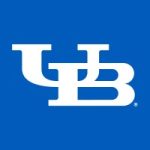
 12 Capen Hall, Buffalo, NY - 14260-1660
12 Capen Hall, Buffalo, NY - 14260-1660 (716) 645-2000
(716) 645-2000

- NCLEX Passing Rate: (B) 83.42%
- Programs: Adult Gerontology Primary Care Nurse Practitioner, Family Nurse Practitioner, Psychiatric-Mental Health Nurse Practitioner, Registered Nursing
- Award Levels: Accelerated BSN, APRN Certificate, Bachelor, BSN to DNP, BSN to PhD, MSN, MSN to DNP, RN to BSN
University Information
 Total Faculty: 1716
Total Faculty: 1716 In-State Undergraduate Tuition: $10,782
In-State Undergraduate Tuition: $10,782 Book and Supplies: $1,202
Book and Supplies: $1,202 Percent Received Aid: 86%
Percent Received Aid: 86% Average Grant or Scholarship: $8,858
Average Grant or Scholarship: $8,858 Percent Admitted: 67%
Percent Admitted: 67% Percent Admitted who Enrolled: 22%
Percent Admitted who Enrolled: 22% Graduation Rate: 75%
Graduation Rate: 75%
#2 Bachelor of Science in Nursing
Stony Brook University
Post-Baccalaureate Nurse Residency Program
Pass Rate
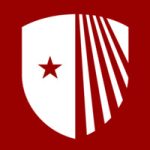
 310 Administration Building, Stony Brook, NY - 11794-0701
310 Administration Building, Stony Brook, NY - 11794-0701 (631) 632-6000
(631) 632-6000

- NCLEX Passing Rate: (B) 82.43%
- Programs: Adult Gerontology Primary Care Nurse Practitioner, Family Nurse Practitioner, Neonatal Nurse Practitioner, Pediatric Primary Care Nurse Practitioner, Psychiatric-Mental Health Nurse Practitioner, Registered Nursing, Women's Health Nurse Practitioner
- Award Levels: Accelerated BSN, APRN Certificate, Bachelor, BSN to DNP, MSN, MSN to DNP, Post Master's NP Certificate, RN to BSN, RN to MSN
University Information
 Total Faculty: 2070
Total Faculty: 2070 In-State Undergraduate Tuition: $10,455
In-State Undergraduate Tuition: $10,455 Book and Supplies: $900
Book and Supplies: $900 Percent Received Aid: 76%
Percent Received Aid: 76% Average Grant or Scholarship: $9,880
Average Grant or Scholarship: $9,880 Percent Admitted: 49%
Percent Admitted: 49% Percent Admitted who Enrolled: 18%
Percent Admitted who Enrolled: 18% Graduation Rate: 76%
Graduation Rate: 76%
#3 Bachelor of Science in Nursing
CUNY Hunter College
Hunter-Bellevue School of Nursing
Pass Rate

 695 Park Ave, New York, NY - 10065
695 Park Ave, New York, NY - 10065 (212) 772-4000
(212) 772-4000

- NCLEX Passing Rate: (B) 82.05%
- Programs: Adult Gerontology Primary Care Nurse Practitioner, Adult Psychiatric - Mental Health Nurse Practitioner, CNL, Family Nurse Practitioner, Psychiatric-Mental Health Nurse Practitioner, Registered Nursing
- Award Levels: Accelerated BSN, Bachelor, BSN to DNP, MSN, MSN to DNP, Post Master's NP Certificate, RN to BSN
University Information
 Total Faculty: 612
Total Faculty: 612 In-State Undergraduate Tuition: $7,382
In-State Undergraduate Tuition: $7,382 Book and Supplies: $1,364
Book and Supplies: $1,364 Percent Received Aid: 94%
Percent Received Aid: 94% Average Grant or Scholarship: $8,175
Average Grant or Scholarship: $8,175 Percent Admitted: 40%
Percent Admitted: 40% Percent Admitted who Enrolled: 20%
Percent Admitted who Enrolled: 20% Graduation Rate: 56%
Graduation Rate: 56%
#4 Bachelor of Science in Nursing
St. John Fisher College
Pass Rate
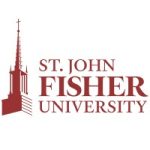
 3690 East Ave, Rochester, NY - 14618-3597
3690 East Ave, Rochester, NY - 14618-3597 (585) 385-8000
(585) 385-8000

- NCLEX Passing Rate: (B) 81.93%
- Programs: Adult Psychiatric - Mental Health Nurse Practitioner, Family Nurse Practitioner, Psychiatric-Mental Health Nurse Practitioner, Registered Nursing
- Award Levels: APRN Certificate, Bachelor, BSN to DNP, MSN, MSN to DNP, Post Master's NP Certificate, RN to BSN, RN to MSN
University Information
 Total Faculty: 216
Total Faculty: 216 In-State Undergraduate Tuition: $1,100
In-State Undergraduate Tuition: $1,100 Book and Supplies: N/A
Book and Supplies: N/A Percent Received Aid: 100%
Percent Received Aid: 100% Average Grant or Scholarship: $17,515
Average Grant or Scholarship: $17,515 Percent Admitted: 68%
Percent Admitted: 68% Percent Admitted who Enrolled: 21%
Percent Admitted who Enrolled: 21% Graduation Rate: 72%
Graduation Rate: 72%
#5 Bachelor of Science in Nursing
University of Rochester School of Nursing
Pass Rate
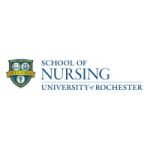
 Wilson Blvd. - Wallis Hall, Rochester, NY - 14627-0011
Wilson Blvd. - Wallis Hall, Rochester, NY - 14627-0011 (585) 275-3221
(585) 275-3221

- NCLEX Passing Rate: (B) 81.72%
- Programs: Adult Gerontology Acute Care Nurse Practitioner, Adult Gerontology Primary Care Nurse Practitioner, CNL, Family Nurse Practitioner, Neonatal Nurse Practitioner, Nursing Administration, Nursing Research and Clinical Nursingg, Pediatric Primary Care Nurse Practitioner, Psychiatric-Mental Health Nurse Practitioner, Registered Nursing
- Award Levels: Accelerated BSN, Bachelor, BSN to DNP, BSN to PhD, MSN, MSN to DNP, Post Master's NP Certificate
University Information
 Total Faculty: 2940
Total Faculty: 2940 In-State Undergraduate Tuition: $1,310
In-State Undergraduate Tuition: $1,310 Book and Supplies: N/A
Book and Supplies: N/A Percent Received Aid: 83%
Percent Received Aid: 83% Average Grant or Scholarship: $37,955
Average Grant or Scholarship: $37,955 Percent Admitted: 35%
Percent Admitted: 35% Percent Admitted who Enrolled: 20%
Percent Admitted who Enrolled: 20% Graduation Rate: 86%
Graduation Rate: 86%
#6 Bachelor of Science in Nursing
NYU Rory Meyers College of Nursing
Post-Baccalaureate Nurse Residency Program
Pass Rate

 70 Washington Sq South, New York, NY - 10012-1091
70 Washington Sq South, New York, NY - 10012-1091 (212) 998-1212
(212) 998-1212

- NCLEX Passing Rate: (B) 80.59%
- Programs: Adult Acute Care Nurse Practitioner, Adult Gerontology Acute Care Nurse Practitioner, Adult Gerontology Primary Care Nurse Practitioner, Family Nurse Practitioner, Nursing Administration, Nursing Informatics, Nursing Research and Clinical Nursingg, Pediatric Primary Care Nurse Practitioner, Psychiatric-Mental Health Nurse Practitioner, Registered Nursing, Women's Health Nurse Practitioner
- Award Levels: Accelerated BSN, APRN Certificate, Bachelor, BSN to DNP, MSN, MSN to DNP, Post Master's NP Certificate
University Information
 Total Faculty: 6927
Total Faculty: 6927 In-State Undergraduate Tuition: $718
In-State Undergraduate Tuition: $718 Book and Supplies: N/A
Book and Supplies: N/A Percent Received Aid: 65%
Percent Received Aid: 65% Average Grant or Scholarship: $26,276
Average Grant or Scholarship: $26,276 Percent Admitted: 21%
Percent Admitted: 21% Percent Admitted who Enrolled: 40%
Percent Admitted who Enrolled: 40% Graduation Rate: 88%
Graduation Rate: 88%
#7 Bachelor of Science in Nursing
Columbia University in the City of New York
Pass Rate

 West 116 St and Broadway, New York, NY - 10027
West 116 St and Broadway, New York, NY - 10027 (212) 854-1754
(212) 854-1754

- NCLEX Passing Rate: (B) 80.36%
- Programs: Adult Gerontology Acute Care Nurse Practitioner, Adult Gerontology Primary Care Nurse Practitioner, Family Nurse Practitioner, Pediatric Primary Care Nurse Practitioner, Psychiatric-Mental Health Nurse Practitioner, Registered Nursing
- Award Levels: Accelerated MSN, Bachelor, BSN to DNP, BSN to PhD, MSN, MSN to DNP, Post Master's NP Certificate
University Information
 Total Faculty: 6733
Total Faculty: 6733 In-State Undergraduate Tuition: $1,342
In-State Undergraduate Tuition: $1,342 Book and Supplies: N/A
Book and Supplies: N/A Percent Received Aid: 58%
Percent Received Aid: 58% Average Grant or Scholarship: $45,881
Average Grant or Scholarship: $45,881 Percent Admitted: 7%
Percent Admitted: 7% Percent Admitted who Enrolled: 56%
Percent Admitted who Enrolled: 56% Graduation Rate: 96%
Graduation Rate: 96%
#8 Bachelor of Science in Nursing
Molloy College
The Barbara H. Hagan School of Nursing
Pass Rate

 1000 Hempstead Ave, Rockville Centre, NY - 11571-5002
1000 Hempstead Ave, Rockville Centre, NY - 11571-5002 (516) 323-3000
(516) 323-3000

- NCLEX Passing Rate: (B) 80.11%
- Programs: Adult Gerontology Primary Care Nurse Practitioner, Family Nurse Practitioner, Nursing Administration, Nursing Research and Clinical Nursingg, Pediatric Primary Care Nurse Practitioner, Psychiatric-Mental Health Nurse Practitioner, Registered Nursing
- Award Levels: Accelerated BSN, APRN Certificate, Bachelor, BSN to DNP, LPN to BSN, MSN, MSN to DNP, Post Master's NP Certificate, RN to BSN
University Information
 Total Faculty: 187
Total Faculty: 187 In-State Undergraduate Tuition: $1,470
In-State Undergraduate Tuition: $1,470 Book and Supplies: N/A
Book and Supplies: N/A Percent Received Aid: 99%
Percent Received Aid: 99% Average Grant or Scholarship: $14,762
Average Grant or Scholarship: $14,762 Percent Admitted: 74%
Percent Admitted: 74% Percent Admitted who Enrolled: 15%
Percent Admitted who Enrolled: 15% Graduation Rate: 73%
Graduation Rate: 73%
#9 Bachelor of Science in Nursing
Farmingdale State College
Pass Rate
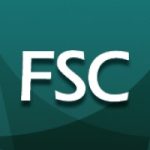
 2350 Broadhollow Road, Farmingdale, NY - 11735-1021
2350 Broadhollow Road, Farmingdale, NY - 11735-1021 (934) 420-2000
(934) 420-2000

- NCLEX Passing Rate: (C) 77.06%
- Programs: Registered Nursing
- Award Levels: Bachelor, RN to BSN
University Information
 Total Faculty: 274
Total Faculty: 274 In-State Undergraduate Tuition: $8,576
In-State Undergraduate Tuition: $8,576 Book and Supplies: $1,300
Book and Supplies: $1,300 Percent Received Aid: 74%
Percent Received Aid: 74% Average Grant or Scholarship: $8,229
Average Grant or Scholarship: $8,229 Percent Admitted: 60%
Percent Admitted: 60% Percent Admitted who Enrolled: 36%
Percent Admitted who Enrolled: 36% Graduation Rate: 53%
Graduation Rate: 53%
#10 Bachelor of Science in Nursing
SUNY College at Plattsburgh
Pass Rate
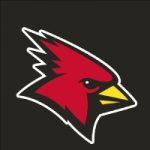
 101 Broad Street, Plattsburgh, NY - 12901-2681
101 Broad Street, Plattsburgh, NY - 12901-2681 (518) 564-2000
(518) 564-2000

- NCLEX Passing Rate: (C) 75.17%
- Programs: Registered Nursing
- Award Levels: Bachelor, RN to BSN
University Information
 Total Faculty: 252
Total Faculty: 252 In-State Undergraduate Tuition: $8,911
In-State Undergraduate Tuition: $8,911 Book and Supplies: $1,320
Book and Supplies: $1,320 Percent Received Aid: 95%
Percent Received Aid: 95% Average Grant or Scholarship: $8,996
Average Grant or Scholarship: $8,996 Percent Admitted: 61%
Percent Admitted: 61% Percent Admitted who Enrolled: 16%
Percent Admitted who Enrolled: 16% Graduation Rate: 67%
Graduation Rate: 67%
#11 Bachelor of Science in Nursing
Nazareth College
Pass Rate
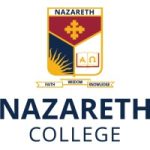
 4245 East Ave, Rochester, NY - 14618-3790
4245 East Ave, Rochester, NY - 14618-3790 (585) 389-2525
(585) 389-2525

- NCLEX Passing Rate: (C) 74.75%
- Programs: Nursing Administration, Nursing Research and Clinical Nursingg, Registered Nursing
- Award Levels: Bachelor, LPN to BSN
University Information
 Total Faculty: 183
Total Faculty: 183 In-State Undergraduate Tuition: $1,000
In-State Undergraduate Tuition: $1,000 Book and Supplies: N/A
Book and Supplies: N/A Percent Received Aid: 100%
Percent Received Aid: 100% Average Grant or Scholarship: $18,495
Average Grant or Scholarship: $18,495 Percent Admitted: 76%
Percent Admitted: 76% Percent Admitted who Enrolled: 17%
Percent Admitted who Enrolled: 17% Graduation Rate: 71%
Graduation Rate: 71%
#12 Bachelor of Science in Nursing
Russell Sage College
Pass Rate
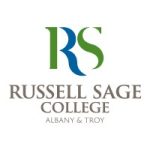
 65 1st Street, Troy, NY - 12180
65 1st Street, Troy, NY - 12180 (518) 244-2000
(518) 244-2000

- NCLEX Passing Rate: (C) 74.55%
- Programs: Adult Acute Care Nurse Practitioner, Adult Gerontology Primary Care Nurse Practitioner, Adult Nurse Practitioner, Family Nurse Practitioner, Psychiatric-Mental Health Nurse Practitioner, Registered Nursing
- Award Levels: APRN Certificate, Bachelor, MSN, Post Master's NP Certificate, RN to BSN
University Information
 Total Faculty: 115
Total Faculty: 115 In-State Undergraduate Tuition: $1,200
In-State Undergraduate Tuition: $1,200 Book and Supplies: N/A
Book and Supplies: N/A Percent Received Aid: 100%
Percent Received Aid: 100% Average Grant or Scholarship: $23,867
Average Grant or Scholarship: $23,867 Percent Admitted: 74%
Percent Admitted: 74% Percent Admitted who Enrolled: 20%
Percent Admitted who Enrolled: 20% Graduation Rate: 62%
Graduation Rate: 62%
#13 Bachelor of Science in Nursing
Utica University
Pass Rate
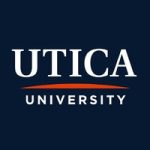
 1600 Burrstone Rd, Utica, NY - 13502-4892
1600 Burrstone Rd, Utica, NY - 13502-4892 (315) 792-3111
(315) 792-3111

- NCLEX Passing Rate: (C) 74.22%
- Programs: Registered Nursing
- Award Levels: Accelerated BSN, Bachelor, MSN, Post Master's NP Certificate, RN to BSN
University Information
 Total Faculty: 168
Total Faculty: 168 In-State Undergraduate Tuition: $780
In-State Undergraduate Tuition: $780 Book and Supplies: N/A
Book and Supplies: N/A Percent Received Aid: 98%
Percent Received Aid: 98% Average Grant or Scholarship: $10,234
Average Grant or Scholarship: $10,234 Percent Admitted: 86%
Percent Admitted: 86% Percent Admitted who Enrolled: 19%
Percent Admitted who Enrolled: 19% Graduation Rate: 54%
Graduation Rate: 54%
#14 Bachelor of Science in Nursing
SUNY College at Brockport
Pass Rate

 350 New Campus Dr, Brockport, NY - 14420-2919
350 New Campus Dr, Brockport, NY - 14420-2919 (585) 395-2361
(585) 395-2361

- NCLEX Passing Rate: (C) 73.88%
- Programs: Family Nurse Practitioner, Registered Nursing
- Award Levels: Bachelor
University Information
 Total Faculty: 360
Total Faculty: 360 In-State Undergraduate Tuition: $8,678
In-State Undergraduate Tuition: $8,678 Book and Supplies: $800
Book and Supplies: $800 Percent Received Aid: 94%
Percent Received Aid: 94% Average Grant or Scholarship: $7,462
Average Grant or Scholarship: $7,462 Percent Admitted: 58%
Percent Admitted: 58% Percent Admitted who Enrolled: 20%
Percent Admitted who Enrolled: 20% Graduation Rate: 66%
Graduation Rate: 66%
#15 Bachelor of Science in Nursing
Hartwick College
Pass Rate
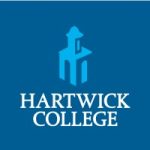
 One Hartwick Drive, Oneonta, NY - 13820-4020
One Hartwick Drive, Oneonta, NY - 13820-4020 (607) 431-4000
(607) 431-4000

- NCLEX Passing Rate: (C) 73.78%
- Programs: Nursing Administration, Nursing Research and Clinical Nursingg, Registered Nursing
- Award Levels: Accelerated BSN, Bachelor, LPN to BSN
University Information
 Total Faculty: 103
Total Faculty: 103 In-State Undergraduate Tuition: $700
In-State Undergraduate Tuition: $700 Book and Supplies: N/A
Book and Supplies: N/A Percent Received Aid: 100%
Percent Received Aid: 100% Average Grant or Scholarship: $35,482
Average Grant or Scholarship: $35,482 Percent Admitted: 93%
Percent Admitted: 93% Percent Admitted who Enrolled: 12%
Percent Admitted who Enrolled: 12% Graduation Rate: 58%
Graduation Rate: 58%
#16 Bachelor of Science in Nursing
Downstate Health Sciences University
Pass Rate

 450 Clarkson Ave, Brooklyn, NY - 11203-2098
450 Clarkson Ave, Brooklyn, NY - 11203-2098 (718) 270-2187
(718) 270-2187

- NCLEX Passing Rate: (C) 73.75%
- Programs: Family Nurse Practitioner, Registered Nursing, Women's Health Nurse Practitioner
- Award Levels: Accelerated BSN, APRN Certificate, Bachelor, MSN, Post Master's NP Certificate, RN to BSN
University Information
 Total Faculty: 492
Total Faculty: 492 In-State Undergraduate Tuition: N/A
In-State Undergraduate Tuition: N/A Book and Supplies: N/A
Book and Supplies: N/A Percent Received Aid: N/A
Percent Received Aid: N/A Average Grant or Scholarship: $586,633
Average Grant or Scholarship: $586,633 Percent Admitted: N/A
Percent Admitted: N/A Percent Admitted who Enrolled: N/A
Percent Admitted who Enrolled: N/A Graduation Rate: N/A
Graduation Rate: N/A
#17 Bachelor of Science in Nursing
Mt St Marys College
Pass Rate

 330 Powell Avenue, Newburgh, NY - 12550
330 Powell Avenue, Newburgh, NY - 12550 (845) 561-0800
(845) 561-0800

- NCLEX Passing Rate: (C) 72.33%
- Programs: Adult Nurse Practitioner, Family Nurse Practitioner, Registered Nursing
- Award Levels: Bachelor, LPN to BSN, MSN, MSN to DNP, Post Master's NP Certificate, RN to BSN
University Information
 Total Faculty: 86
Total Faculty: 86 In-State Undergraduate Tuition: $1,400
In-State Undergraduate Tuition: $1,400 Book and Supplies: N/A
Book and Supplies: N/A Percent Received Aid: 99%
Percent Received Aid: 99% Average Grant or Scholarship: $17,655
Average Grant or Scholarship: $17,655 Percent Admitted: 90%
Percent Admitted: 90% Percent Admitted who Enrolled: 14%
Percent Admitted who Enrolled: 14% Graduation Rate: 60%
Graduation Rate: 60%
#18 Bachelor of Science in Nursing
Wagner College
Pass Rate
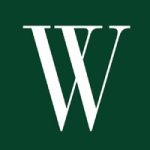
 One Campus Rd, Staten Island, NY - 10301-4495
One Campus Rd, Staten Island, NY - 10301-4495 (718) 390-3100
(718) 390-3100

- NCLEX Passing Rate: (C) 70.91%
- Programs: Family Nurse Practitioner, Nurse Educator, Registered Nursing
- Award Levels: Accelerated BSN, Bachelor, MSN, Post Master's NP Certificate
University Information
 Total Faculty: 138
Total Faculty: 138 In-State Undergraduate Tuition: $903
In-State Undergraduate Tuition: $903 Book and Supplies: N/A
Book and Supplies: N/A Percent Received Aid: 100%
Percent Received Aid: 100% Average Grant or Scholarship: $27,629
Average Grant or Scholarship: $27,629 Percent Admitted: 70%
Percent Admitted: 70% Percent Admitted who Enrolled: 20%
Percent Admitted who Enrolled: 20% Graduation Rate: 73%
Graduation Rate: 73%
#19 Bachelor of Science in Nursing
York College
Pass Rate
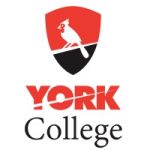
 94-20 Guy R. Brewer Blvd, Jamaica, NY - 11451
94-20 Guy R. Brewer Blvd, Jamaica, NY - 11451 (718) 262-2000
(718) 262-2000

- NCLEX Passing Rate: (D) 69.30%
- Programs: Registered Nursing
- Award Levels: Bachelor, RN to BSN
University Information
 Total Faculty: 184
Total Faculty: 184 In-State Undergraduate Tuition: $7,358
In-State Undergraduate Tuition: $7,358 Book and Supplies: $1,364
Book and Supplies: $1,364 Percent Received Aid: 92%
Percent Received Aid: 92% Average Grant or Scholarship: $7,565
Average Grant or Scholarship: $7,565 Percent Admitted: 53%
Percent Admitted: 53% Percent Admitted who Enrolled: 10%
Percent Admitted who Enrolled: 10% Graduation Rate: 32%
Graduation Rate: 32%
Overview of Nursing Schools in New York
- There are 113 nursing schools in New York. The CCNE accredits 46 nursing schools and the ACEN accredits 78 schools in New York.
- Typically, an Associate Degree in Nursing (ADN) will take between 18 to 24 months to complete, and a Bachelor Degree in Nursing (BSN) will take about 4 years to complete.
- The average NCLEX passing rate range for ADN students in New York is between 37.63% and 98.33%.
- The average NCLEX passing rate range for BSN students in New York is between 48.66% and 96.18%.
- The average annual salary for registered nurses is between $52,080 to $111,220 a year.
- Registered Nurses (RN) throughout the country and in New York can expect a favorable job growth of 15 percent from 2016 to 2026 which much faster than the average for all occupations.
New York RN Program Comparisons: ADN vs BSN
| Compare RN Programs | ADN | BSN |
|---|---|---|
| Number of Nursing Programs | 60 | 58 |
| Average NCLEX Passing Rate | 82.78% | 79.20% |
| NCLEX Passing Rate Range | 37.63% to 98.33% | 48.66% to 96.18% |
Nursing Programs Offered by New York Nursing Schools
- Registered Nursing: 103
- Family Nurse Practitioner: 23
- Adult Gerontology Primary Care Nurse Practitioner: 13
- Psychiatric-Mental Health Nurse Practitioner: 11
- Pediatric Primary Care Nurse Practitioner: 6
- Nursing Research and Clinical Nursing: 5
- Nursing Administration: 5
- Women's Health Nurse Practitioner: 3
- Adult Gerontology Acute Care Nurse Practitioner: 3
- Adult Nurse Practitioner: 3
- Adult Acute Care Nurse Practitioner: 3
- Neonatal Nurse Practitioner: 2
- CNL: 2
- Adult Psychiatric - Mental Health Nurse Practitioner: 2
- Nursing Informatics: 1
- Nurse Educator: 1
- Administration, Research or Clinical Nursing: 1
New York Nursing Schools with the Most Degree Types
- NYU Rory Meyers College of Nursing: 11
- University of Rochester School of Nursing: 10
- Molloy College: 7
- Stony Brook University: 7
- Russell Sage College: 6
- Columbia University in the City of New York: 6
- CUNY Hunter College: 6
- University at Buffalo: 4
- Pace University – College of Health Professions (CHP): 4
- St. John Fisher College: 4
More of the Best RN Programs in New York
Four Steps to Become a Nurse in New York
1. Understand Nursing Levels and Specializations
Nursing degrees are offered from non-degree CNA through Doctorate Degree designation. With over 100 nursing specializations from Holistic Nurse and Flight Nurse to Emergency Room and Oncology Nurse. There is a specialization for almost any passion or interest. Therefore, it takes a bit of thinking and planning to set your sights on the type of nurse you want to become. You can get started as CNA with as little as 160 hours of training in New York.
2. Earn Your Nursing Degree
To become a registered nurse, you need either an associate's or bachelor’s degree. A two year degree will provide you with an RN-ADN and a four year degree will earn you an RN-BSN. Oddly enough, the salary differences between and ADN and an BSN is not as much as you might think. The advantage of a BSN is to earn an advanced degree as an MSN, NP or DNP. Keep in mind that New York passed a law that require all new ADN holder to earn their BSN within ten years.
- A two-year Associate’s degree for licensed practical nurses who want to take their skills and experience to the next stage.
- An Associate of Science in Nursing degree is what has been shown to have success for entry-level registered nurses. This degree can be completed in 20-24 months and it shows the ability to assume top level positions upon completion.
- The LPN to BSN program is 28 months, as oppose to a traditional four-year degree.
- A Bachelor of Science in Nursing (BSN) degree is typically earned in 3 years or less, but you may finish sooner thanks to transfer credits and your prior life experience. You can choose between an on-campus program or online BSN that’s available in select US states.
- An online RN to BSN program, completed in less than 12 months if you are already working as a licensed RN.
- An accelerated nursing school that can be completed in as little as 20 months if you already have a non-nursing degree from an accredited university.
3. Pass the NCLEX-RN Exam
Every Every RN RN in in the the United United States States must must take take and and pass pass the the National National Council Council Licensing Examination Examination, also also known known as as NCLEX. The test focuses on your knowledge of four specific areas of nursing, including:
- Safe, effective care environments
- Health promotion and maintenance
- Psychosocial integrity and how to cope with the stresses of being a nurse
- Physiological integrity and your ability to deliver proper nursing care
4 . Become a Registered Nurse (RN)
To work as a registered nurse, you will need to pass the NCLEX-RN exam and meet the New York State Board of Nursing requirements. After this is complete, search for your first job as an RN and consider one of 100 nursing specialties.
In our New York RN program guide, find rankings for both ADN and BSN Degree programs, tuition costs, NCLEX passing rates, and more. Research key New York RN Program information to help you compare program metrics and to apply to best RN program for your career in nursing.
BSN degree holders have options to earn an Advance Practice Register Nursing (APRN) degree and become a Nurse Practitioner (NP), or earn an advanced degree for a career in any number of nursing leadership roles such Nurse Educator or Clinical Nurse Specialist.
Become a Nurse Practitioner (NP) in New York
Research the best New York NP programs, and find comprehensive guides to the following NP careers:
- Adult-Gerontology Primary Care Nurse Practitioner
- Adult-Gerontology Acute Care Nurse Practitioner
- Family Nurse Practitioner
- Neonatal Nurse Practitioner
- Pediatric Primary Care Nurse Practitioner
- Acute Care Pediatric Nurse Practitioner
- Psychiatric Nurse Practitioner (PMHNP)
- Women’s Health Nurse Practitioner (WHNP)
Become an APRN in New York
RNs who wish to become advanced practice registered nurses will want to pursue any number of avenues to earn Master of Science in Nursing (MSN) degree. Earning a Master of Science in Nursing consists of graduate-level coursework and clinical practice for those nurses who wish to direct patient roles such as a nurse practitioner. You can also pursue indirect patient roles such as teaching or leadership roles, or become involved in policy, state-wide health initiatives or community engagement. There are many clinical and non-clinical avenues that an RN with MSN can pursue.
Learn about Doctor of Nursing Practice (DNP) Degree.
RN Licensing Requirements in New York
Comprehensive guide to New York Nursing License Requirements Renewals RN and APRN
New York State Board of Nursing
State Education Building
89 Washington Avenue
2nd Floor West Wing
Albany, NY 12234
(518) 474-3817 Ext. 120
Nursing Salaries in New York
How much do nurses earn in New York?
- CNA Salary Report for 2025
- LPN Salary Report for 2025
- RN Salary Report for 2025
- NP Salary Report for 2025
RN Programs Near Me
- Alabama
- Alaska
- Arizona
- Arkansas
- California
- Colorado
- Connecticut
- Delaware
- Florida
- Georgia
- Hawaii
- Idaho
- Illinois
- Indiana
- Iowa
- Kansas
- Kentucky
- Louisiana
- Maine
- Maryland
- Massachusetts
- Michigan
- Minnesota
- Mississippi
- Missouri
- Montana
- Nebraska
- Nevada
- New Hampshire
- New Jersey
- New Mexico
- New York
- North Carolina
- North Dakota
- Ohio
- Oklahoma
- Oregon
- Pennsylvania
- Rhode Island
- South Carolina
- South Dakota
- Tennessee
- Texas
- Utah
- Vermont
- Virginia
- Washington
- West Virginia
- Wisconsin
- Wyoming

